24/7 Support and Monitoring
Each patient receives a tailored dialysis schedule, access management, and follow-up care to address their unique needs, ensuring optimal outcomes.
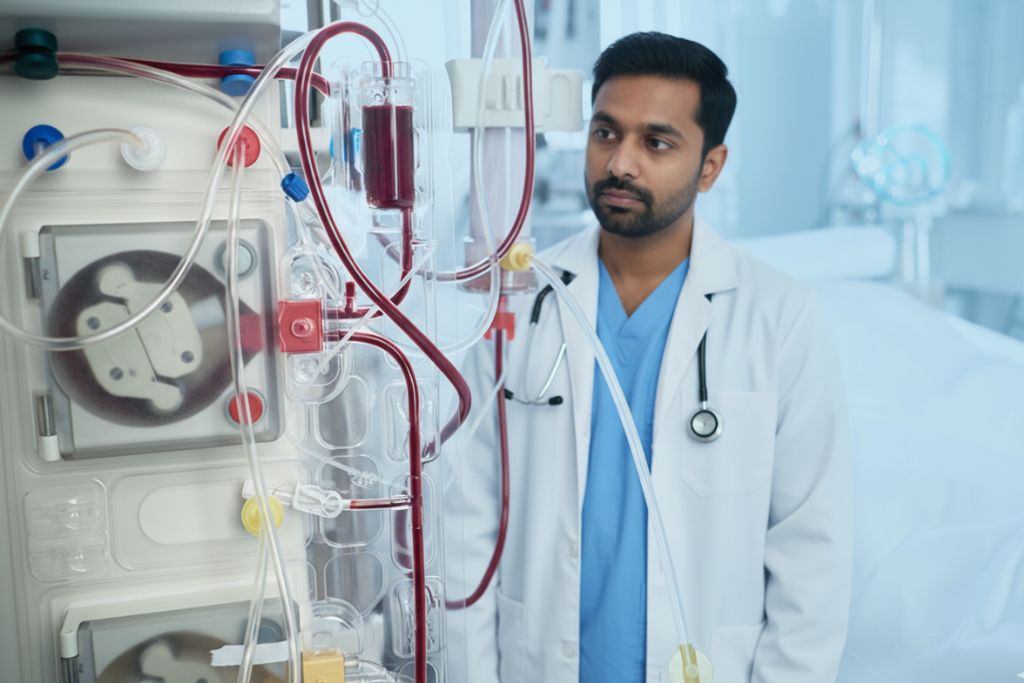
Hemodialysis is a life-saving treatment that filters waste, toxins, and extra fluids from the blood when kidneys can no longer perform this function. As a cornerstone of hemodialysis in Gorakhpur, this procedure is critical for patients with end-stage renal disease (ESRD) or severe chronic kidney disease (CKD).
Hemodialysis involves using a specialized machine, called a dialyzer, to clean the blood. Blood is drawn from the body, passed through the dialyzer to remove waste and extra fluids, and then returned to the body. This process mimics the kidneys’ natural filtration, helping maintain balance in the body’s fluids and electrolytes.
Safe, effective, and patient-centered dialysis care is available in Gorakhpur, led by Dr. Arpit Srivastava, a highly qualified nephrologist.
+91-7054357996Hemodialysis is essential for patients whose kidneys cannot adequately filter waste, such as those with:
Benefits of Hemodialysis
Hemodialysis offers significant benefits, including:
With expert care from a hemodialysis specialist in Gorakhpur, patients can experience improved health and quality of life.
Quick and easy online scheduling
+91-7054357996 arpitnephro@yahoo.comProviding advanced kidney care at Regency Hospital, Gorakhpur
Hemodialysis is recommended when kidney function is severely impaired, and the body can no longer manage waste or fluid balance effectively. Recognizing the signs and conditions requiring dialysis is crucial for timely intervention.
Common symptoms that may indicate the need for dialysis include:
If you experience these symptoms, consulting a kidney dialysis expert in Gorakhpur is vital for evaluation and care.
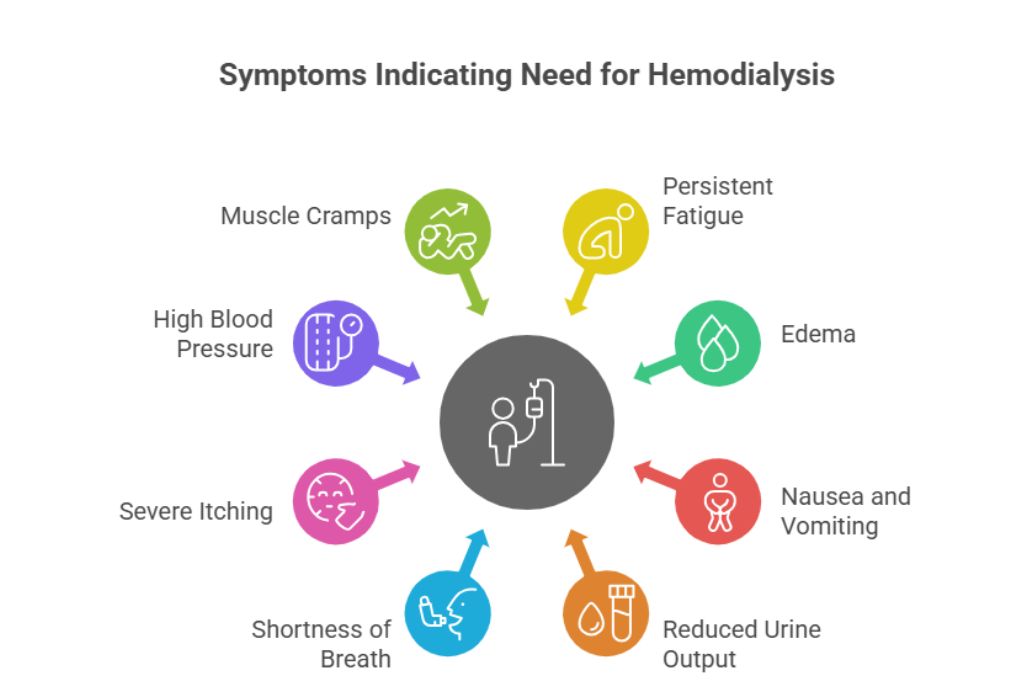
Understanding the hemodialysis process can ease concerns and help patients prepare for treatment. As a leading provider of hemodialysis in Gorakhpur, our center ensures a safe and comfortable experience.
Hemodialysis uses a dialyzer, often called an “artificial kidney,” to filter blood. The process involves:
A dialysis doctor in Gorakhpur customizes the schedule to meet individual needs, ensuring optimal outcomes.
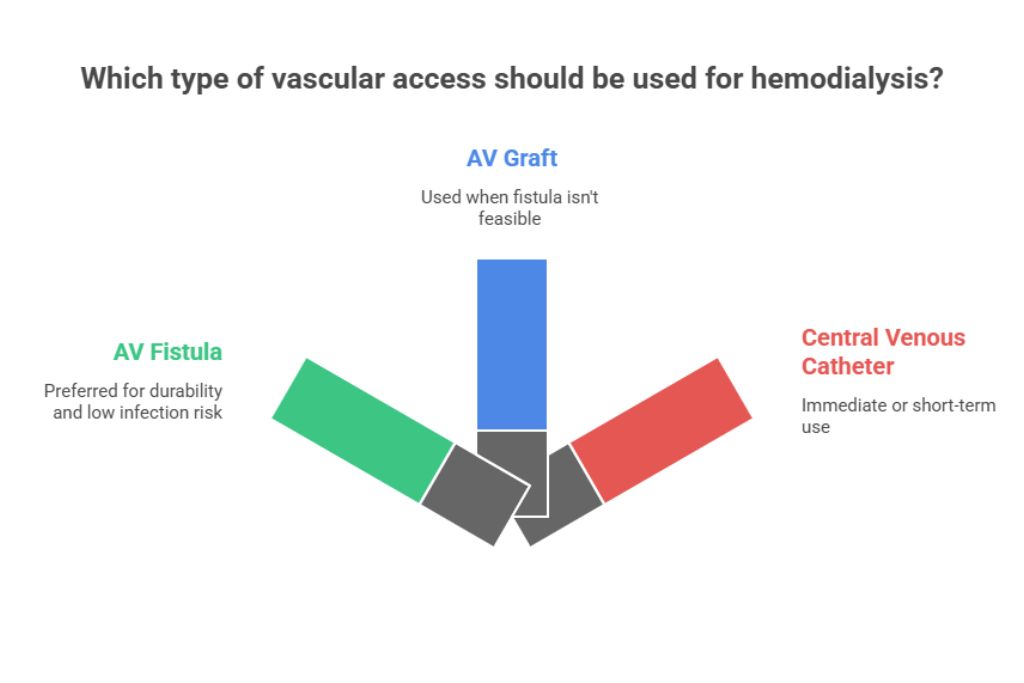
Vascular access is critical for effective hemodialysis, allowing blood to flow to and from the dialysis machine. The main types of access include:
Our hemodialysis in Gorakhpur services are designed to provide exceptional care, combining advanced technology with patient comfort. Key benefits include:
These benefits make our center a trusted choice for dialysis treatment in Gorakhpur.
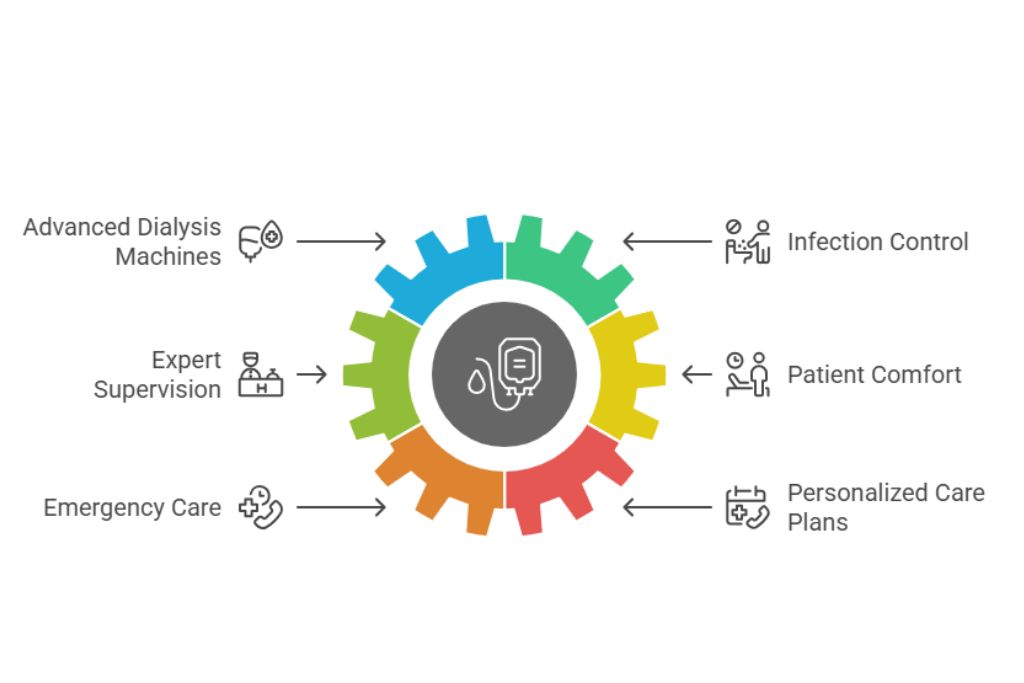
While hemodialysis is generally safe, it carries some risks. Understanding these and how they are managed ensures a positive experience.
Following dietary, fluid, and medication guidelines is crucial to minimize complications and enhance dialysis effectiveness. A hemodialysis specialist in Gorakhpur provides detailed instructions to support patient safety.
Proper diet and lifestyle are vital for hemodialysis patients to maintain health and optimize treatment outcomes. Guidance from a kidney dialysis expert in Gorakhpur ensures patients follow kidney-friendly practices.
A dialysis-specific diet helps manage waste and fluid levels:
Hemodialysis patients must carefully manage fluid intake:
Moderate lifestyle changes can improve well-being:
Callout: Our dialysis treatment in Gorakhpur includes personalized diet and lifestyle guidance to help patients thrive while managing kidney failure.
Dr. Arpit Srivastava is a trusted nephrologist in Gorakhpur, offering unparalleled expertise in hemodialysis care. Here’s why patients choose him:
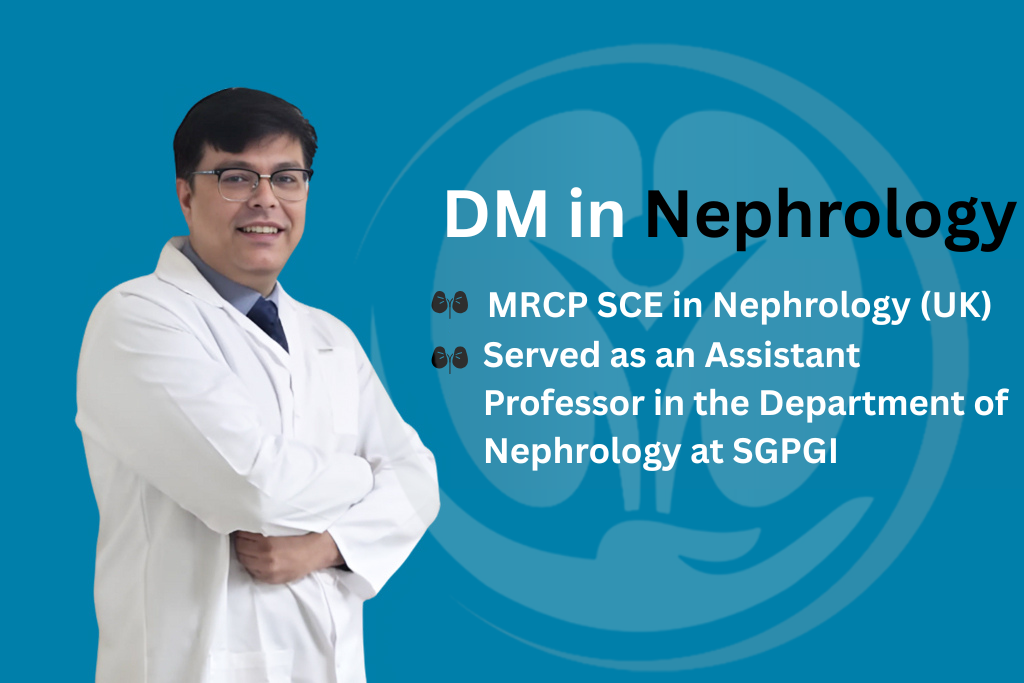

With a DM in Nephrology from Sanjay Gandhi Postgraduate Institute of Medical Sciences (SGPGI), Lucknow, and MRCP SCE Nephrology (UK) credentials, Dr. Arpit Srivastava brings world-class expertise. His experience includes over 200 kidney transplants and extensive dialysis management.

Each patient receives a tailored dialysis schedule, access management, and follow-up care to address their unique needs, ensuring optimal outcomes.
For advanced hemodialysis in Gorakhpur, trust Dr. Arpit Srivastava to deliver compassionate, world-class care. Whether you’re starting dialysis or seeking ongoing management, our team is here to support your kidney health journey.
Hemodialysis is generally not painful. Some patients may feel mild discomfort during needle insertion for vascular access, but this is minimized with proper technique at our best dialysis center in Gorakhpur.
Sessions typically last 3–5 hours, 3 times per week, depending on your condition. A dialysis doctor in Gorakhpur customizes the schedule for you.
Yes, with planning. Coordinate with a dialysis center in Gorakhpur and other locations to arrange sessions at your destination.
Keep the access site clean, avoid pressure or injury, and report signs of infection (redness, swelling) to your hemodialysis specialist in Gorakhpur.
Hemodialysis uses a machine to filter blood, while peritoneal dialysis uses the abdominal lining. Consult a kidney dialysis expert in Gorakhpur to determine the best option.
Hemodialysis manages kidney failure but does not cure it. For a potential long-term solution, discuss kidney transplant with a kidney transplant doctor in Gorakhpur.
Symptoms like fatigue, swelling, or reduced urine output, along with blood tests showing low GFR, indicate the need. Consult a dialysis specialist in Gorakhpur for evaluation.
Room no 19, Second Floor, Regency Hospital, Plot No-623, Medical College Road, Gulhariya, Gorakhpur, Uttar Pradesh 273013
Immediate support is just a call away. Reach out now and let us take care of the rest.